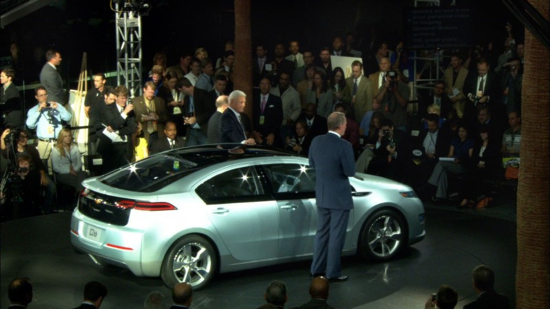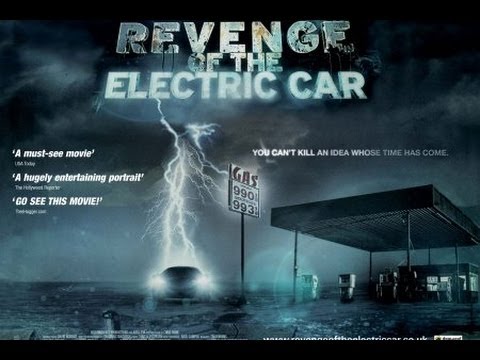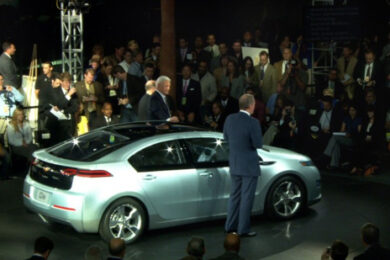I caught Chris Paine’s original documentary, Who Killed The Electric Car?, on a transatlantic flight some years back. Though I was pulverised by jet lag and very much a captive audience, it made for gripping viewing. Part conspiracy theory and part detective story, Paine investigated the history of electric cars in a country where ownership of the gas-guzzling muscle car, or soccer mom wagon, or grossly swollen Humvee is considered a right, not a privilege.
The movie centred upon the EV1: a practical, electrically powered automobile that was produced, and then later recalled, and then swiftly pulped by General Motors. It explored the possible reasons why the American car giant would not only want to cease production of a vehicle that offered some kind of escape from our impending environmental catastrophe, but also eradicate it from existence. The answers Paine found were, as you might expect, troubling, and his film ended with the suggestion that nefarious corporate interests were at work to ensure that a planet of drivers would remain shackled to the gasoline teat for the foreseeable future.
Six years on, this sequel doesn’t begin promisingly. His mission this time is to track two mega-corporations, General Motors and Nissan, as they begin developing new electric projects, respectively the Volt and the Leaf. Paine contrasts their efforts with those of upstart car maker Tesla, run by PayPal founder Elon Musk, and Greg Abbott, aka Reverend Gadget, a Los Angeleno prop builder who converts petrol cars to electric power from a warehouse in California.
For its first half the movie mopes along like a reluctant corporate cheerleader, offering anodyne profiles of Nissan’s Carlos Ghosn and GM’s Bob Lutz – the man who killed the EV1 – coming on like an overlong Forbes magazine feature which expects us to be grateful that they’ve discovered possible profit in the ecological movement. Musk, a self-made millionaire with an abundant ego, is a similarly uninspiring lead, yet another internet mogul burning through his money. These bigwigs share the screen with a number of motoring journalists, petrolhead feebs all.
But then, just as their brave new dawn appears to be hovering into view, the financial collapse comes along and the houses of cards all develop serious dry rot. Even Reverend Gadget comes a cropper as his warehouse burns to the ground, along with all his uninsured equipment, and he has to start over in a new location that turns out to be life-threateningly toxic. With this shift, Revenge…‘s narrative tightens and Paine finds a story more to his tastes, chronicling the hard times of the electric dream with sharp vividity.
Under pressure, his principals are fascinating – human, finally. Not android Ghosn, admittedly, but Bob Lutz is a treat: a corporate beast facing his final winter, hoping to score big on one last roll of the dice. Forced to scrap his beloved Hummer to save the damaged General Motors brand, he flies into Washington to beg for bailout money. "It would be a good time for a little humility," Lutz understates, though he and his GM cronies flew private jets to DC to ask for their handout. Meanwhile, as Tesla’s Roadster is declared "vapourware" by sceptical motoring hacks, Musk’s company faces bankruptcy. Going through a messy and no doubt expensive divorce, Musk is also planning his next marriage, to twentysomething British actress and St Trinian’s starlet Talulah Riley, who appears to have stepped right out of an episode of Girls.
The conclusion turns on a stock market float, and the true end of this story is yet to unfold, to be honest. But Revenge Of The Electric Car is still compelling, at least once its tale warms up; if you haven’t seen its predecessor you should definitely track that down first, but as a postscript this works fine. And when Danny DeVito, an enthusiastic charter owner of the EV1 who still mourns the day GM took his electric car away, finally gets to drive a Chevy Volt, watching the funny little man reunite with his eco-dream is not a little affecting.
Revenge Of The Electric Car opens in selected UK cinemas today; for a full list of screenings check the Dogwoof website. A DVD release follows on August 6.




